news
Renewed Hope: Establishment of National Research Development & Innovation Coordination for Nigeria – Utilizing RDI solutions to deliver on Presidential priorities, says Minister of Innovation Science and Technology
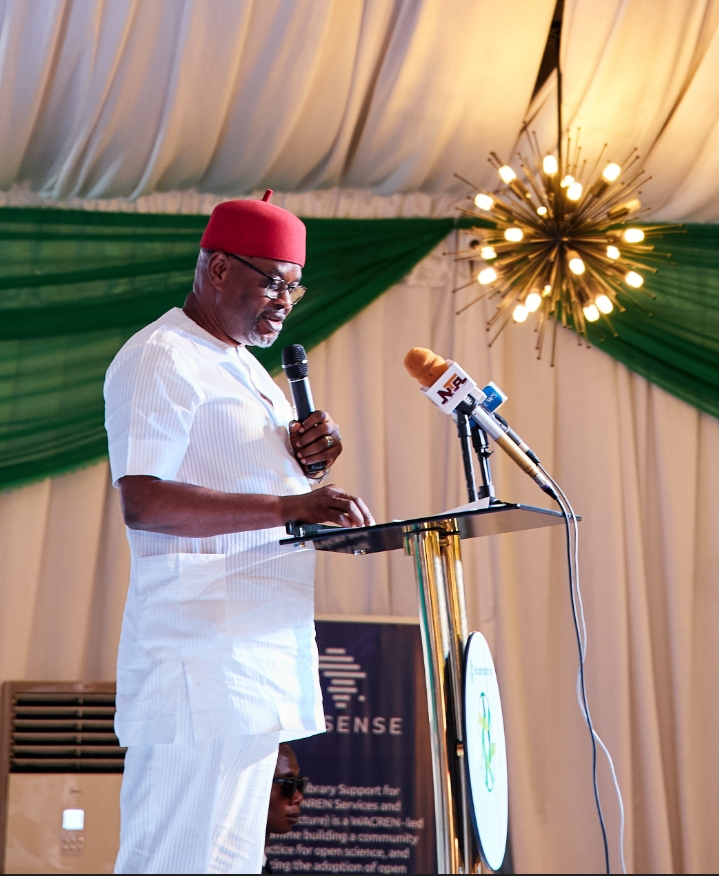

The Honorable Minister of Innovation Science and Technology, Chief Uche Nnaji, at the ongoing 3-day RDI Summit in Abuja, highlights the need to imbibe collaborative efforts in changing Nigerian narratives in research and development that can advance the course of economic growth in the country. Chief Nnaji stressed the need to embark on a journey to redefine and reposition Nigeria on the global map of innovation, science, and technology. The theme of our gathering, “Advancing Nigeria’s Global Competitiveness Through a Resilient National RDI Coordination,” is not just a statement of intent; it is a clarion call to action.
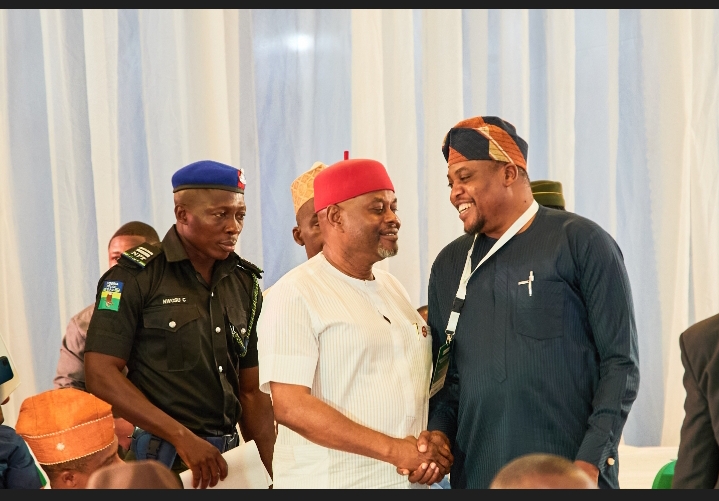
He added, in today’s rapidly evolving world, the pace of technological advancements is not just fast; it is exponential. Nations that have recognized and harnessed the power of research, development, and innovation are leading the charge towards economic prosperity, societal well-being, and sustainable development. It is time for Nigeria to take its rightful place among these nations.
To achieve this, we must first acknowledge that our RDI ecosystem requires robust coordination, one that is resilient, inclusive, and forward-thinking. Our goal is to create a system where academia, industry, government, funders and the community not only interact but thrive together, fostering an environment ripe for groundbreaking innovations.
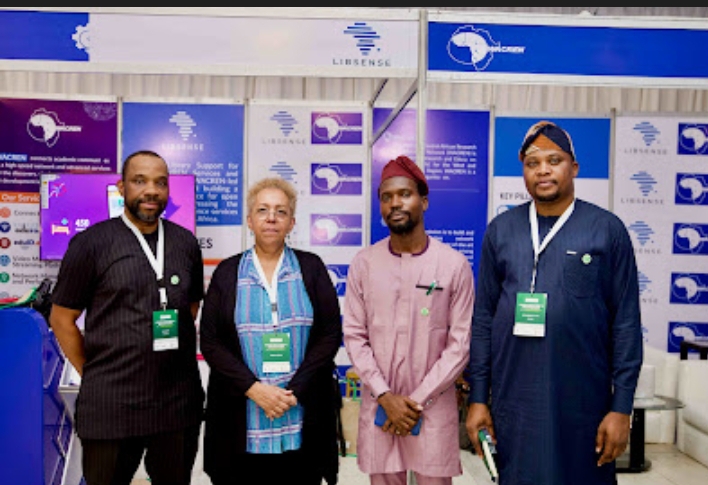
Our vision for Nigeria is to become a hub for African innovation, contributing significantly to the global knowledge economy. This can be achieved by implementing a three-pronged approach:
1. Strengthening Institutional Frameworks: It is imperative that we build and strengthen the institutional frameworks necessary for effective RDI coordination. This includes policy reforms that incentivize research and development, protect and commercialize intellectual properties, and facilitate the commercialization of research outcomes.
2. Fostering Public-Private Partnerships: The collaboration between the public sector, private industry, Academia and funding institutions is crucial. By fostering partnerships that leverage the strengths of each sector, we can accelerate the translation of research outcomes into market-ready solutions that address our most pressing challenges.
3. Investing in Human Capital: At the heart of any successful RDI ecosystem are the people. Investing in education and training to build a skilled workforce ready to navigate and lead in the Fourth Industrial Revolution is non-negotiable. We must nurture our young talents and provide them with the platforms to excel and innovate.
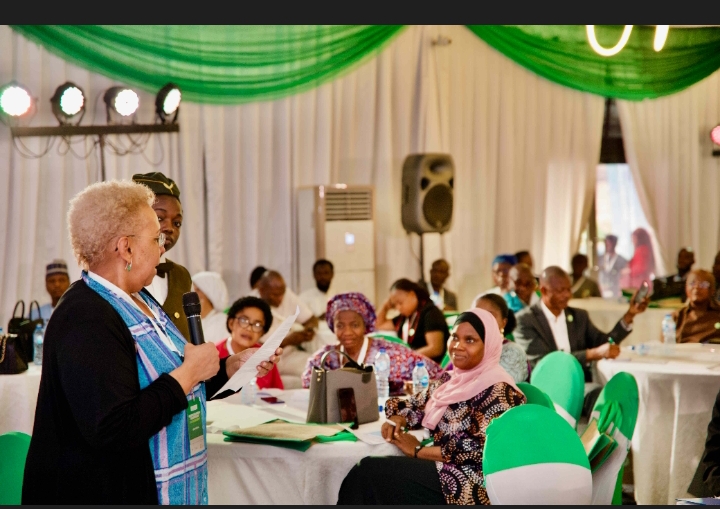
The Summit was convened and facilitated by Research for Impact, Knowledge economy, and sustainable development RIKE-SD and organized by West and Central Africa Research and Education Network (WACREN) with financial support from the Foreign Commonwealth Development Office, UK.
Dr Popoola Mustapha, Executive Director, Research Impact For Knowledge, Economy, and Sustainable Development (RIKE SD), commented that RIKE SD is a Nigeria incorporated research for impact, not for profit organization with an African development forecast, the first Research as a Service organization in the country that focuses on taking Nigerian innovative outputs to other African countries by targeting impacts at all 54 nations in the next five years. The event today was designed to accelerate coordination for research and innovation development in Nigeria.For us to build an evidence based solution matrix in support of President Bola Ahmed Tinubu’s transformation Renew hope agenda, we must institutionalized RDI solutions at ministries, departments &agencies(MDAs) of government at national and sub national levels in line with the directives of Mr.President. It’s important we get coordinated. This is the first time we are organically co creating RDI Coordination in Nigeria with over 200 institutions and organizations. By this effort, we shall be well positioned to RDI platforms to attract huge local and foreign direct investments. This would be linked to the commercialization of several RDI outputs and outcomes domiciled in our universities and other institutions of higher learning. We have innovated Pentagonal-Nexus from the Triple Helix approach of collaboration. The nexus is unique, where the government works alongside industries, and Academia, by focusing on communities that would use the research outcomes. We also ensure the funders are on the table of discussions and the outcomes are demand driven.
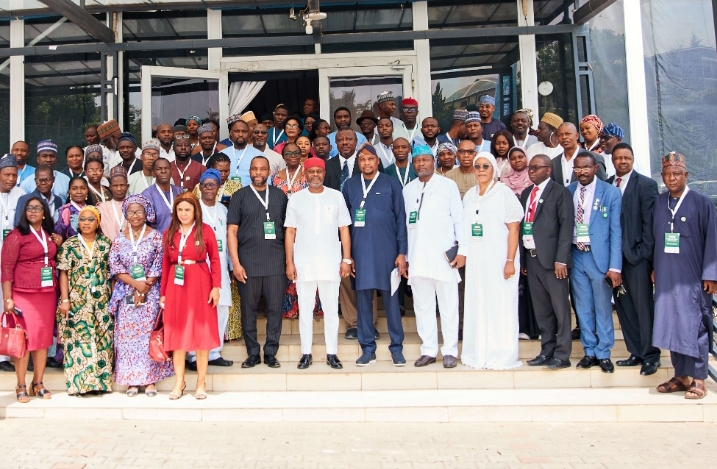
We are targeting nothing less than N10 Trillion in new revenue opportunities. The RIKE-SD Pentagonal nexus model of collaboration was innovated in Nigeria but presently been adopted globally; we try to avoid a situation where we finish planning and start looking for funds to implement.As The Minister of Innovation Science and Technology, Chief Uche Nnaji, highlighted, there would be good outcomes after the 3-day summit that would bolster the development of Nigeria. We believe the presidential directive on STI and RDI institutionalization can only be actualized when private sectors are involved in this RDI coordination project. We would collaborate with all the relevant government agencies to actualize it; ultimately, for the next 3 days, we would evolve a national steering committee to be in charge of coordination; we want it to evolve naturally among the leaders that are here.Additionally, 8 think tanks working on the 8 presidential priority areas will emerge.We are using the toolkits of research, science technology & innovations to shape and deliver solutions on the 8 priority areas of Renew hope agenda.
Collective efforts with better outcomes would deliver a better Nigerian economy other African nations could emulate in RDI led policy formulations. The outcome, however, would present Nigeria in the global spotlight as a productive and competitive economy. He affirms that that with over 200 agencies and stakeholders in attendance, I foresee the outcome of this summit would generate expected innovations. Media crews were equally commended for their wide coverage of the event; we assure this would be turbo-driven, he said.
In keynote address from The British High Commission Deputy Development Director, in agreement and contribution to the RDI Summit, delivered by Susan Mshana, commended the organisation of the summit,stated non coordination of research outcomes from different research centers had been the bottlenecks hampering development in Nigeria. Mshana further highlighted The Science, Technology and Innovation Strategy for Africa 2024, by the African Union Commission, which encourages each member State to allocate 1% of GDP for research and development. This is based on the premise that robust research and development will help chart the path for local economic development. 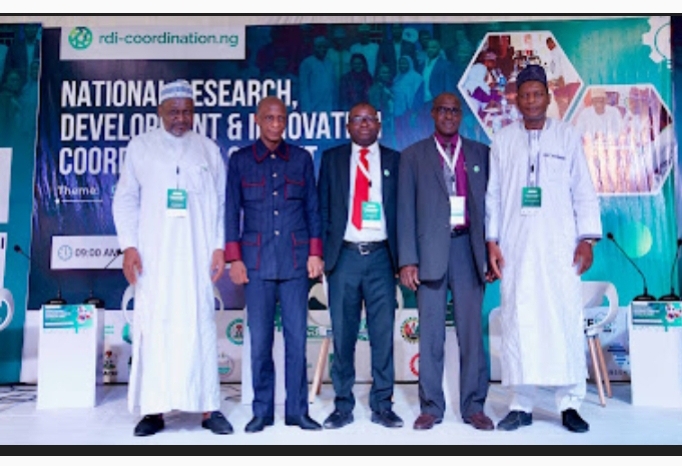
Hence, the need for a central level coordinating institution in Nigeria to ensure no sector of the economy or relevant stakeholder is left behind in research funding. Such an institution will also ensure high research quality, and provide oversight for research production and dissemination at the national level. Above all, a central level research coordinating body would give the Federal Government a big picture view within one organisation of all the different research and development activities going on in-country across geographic scale, economic sector, and discipline as well as those involved. This would further strengthen the RDI sector in the country while improving government’s capacity to plan better and make evidence-informed decisions and policies.
The British commission affirms commitment to championing progress towards a more open, equitable and secure research ecosystem that is more inclusive of developing countries, to support greater multilateral and bilateral collaborations on science and technology.
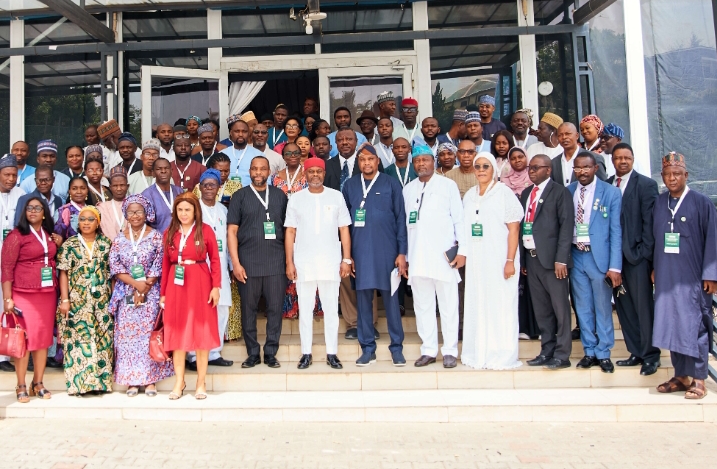
The UK’s FCDO can provide a counter-narrative, leveraging a wide range of cross-government international funds, an experienced network delivering science diplomacy, and its leading role in multilateral fora. The British High Commission in Nigeria can demonstrate the importance of R&D programming and wider collaboration, to fuel the necessary advances in science and technology in Nigeria. This can be done in a way that builds on trusted relationships and protects research security.
The collaborative effort of the UK with strategic partners currently supports 16 African countries through the Science Granting Councils Initiative (SGCI) to set up or where already existing strengthen their national research and innovation coordinating institutions. Today’s event is a testament to this support in Nigeria by creating this safe space to discuss and problem solve on the best approach to set up and operationalise a national research and innovation coordinating institution in Nigeria with all strategic stakeholders in attendance.
Our world-leading science and research sector will work in open and secure partnerships with researchers and innovators to drive our scientific response to some of the biggest global challenges and deliver science for development. UK’s FCDO and UK Research & Innovation (UKRI) are two strong UK public institutions with expertise, and globally renowned in this domain and have been driving this agenda for stronger national level research coordination in African countries.
Professor Abubakar Sambo, President-elect,The Nigeria Academy of Science stated the renewed hope agenda of the president Tinubu fall in line with actualisation of research and development outputs to harness economic growth. He urges all government agencies and MDA’s to incorporate RDI into their annual budgets and activities. In his responses to why Nigerian government is retarded in development despite several scientific breakthroughs globally on research and development, Prof.Sambo said its due to non implementations of research outcomes, ‘we produced result but not tailored towards commercialization.He assures the delegates that this organized summit would address and activate adoption, commercialization and utilisation of RDI outputs henceforth.
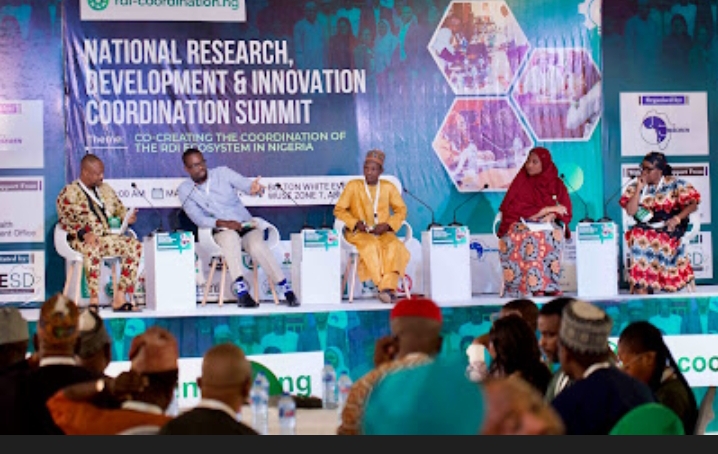
Dr Mrs Udoderem Ngonna,representing Director General of Raw Material Research and Development Council indicated how innovation is key to development always,urge everyone to harness several innovations for development,she said there are millions of innovations been churning out for policy formulations and economic drive. She reacted on probe of why Nigerian raw materials not adding values to our exportation sectors, Dr Nnaji reacted that Nigerian researchers had done lots of research work but observed not much had been done in areas of harnessing them for societal impact. She, however assured that the event of this nature would trigger implementation.The main thing is being able to bring together several research outcomes from all sources ,then push for implementation that Federal government of President Tinubu would buy into the outcomes for utilization.
Omoh Oaiya, the Chief Strategy officer,West and Central Africa Research and Education Network (WACREN) stated that WACREN has collaborated with member nations to bring different ideas together and look into how we formulate policies for growth. We have aligned our objectives with President Tinubu’s Renew agenda in supporting government agencies and industries to formulate good policies.
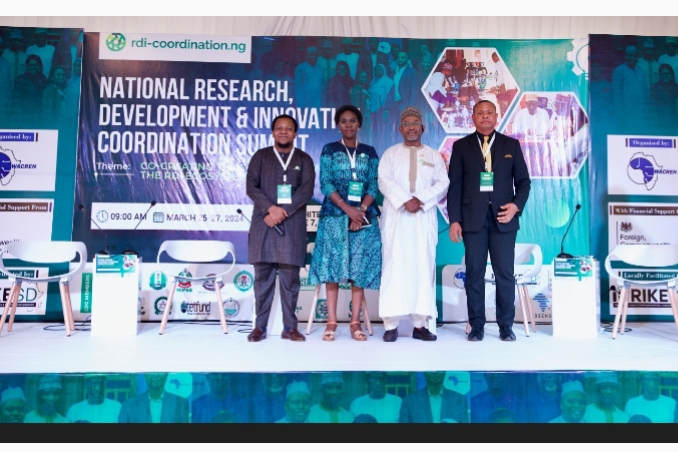
Dr Shabibu Hassan,Chairman of Tech Industry,also member of international Agricultural group enumerated how research plays key roles in global development. He highlighted collaborations among other agricultural groups for development would enhance chances for national progress and survival. Cited India as Economic instance where they started with few hospitals but later invested heavily in the health sectors,now the world travels for health tourism to India. Lessons can be drawn from India , and Nigeria would build on its research inputs for economic growth. Agriculture and power sector fundings can open doors to economic growth. Dr Hassan concludes that RDI Summit would addresses several bottlenecks as we collaborated together to grow the economy. I grow up here in Nigeria and my family has established hospitals here where people get health attentions those days but today India has grown their health sectors for global attraction. Teamwork with different intellectual capacities collaboration is the key,he said.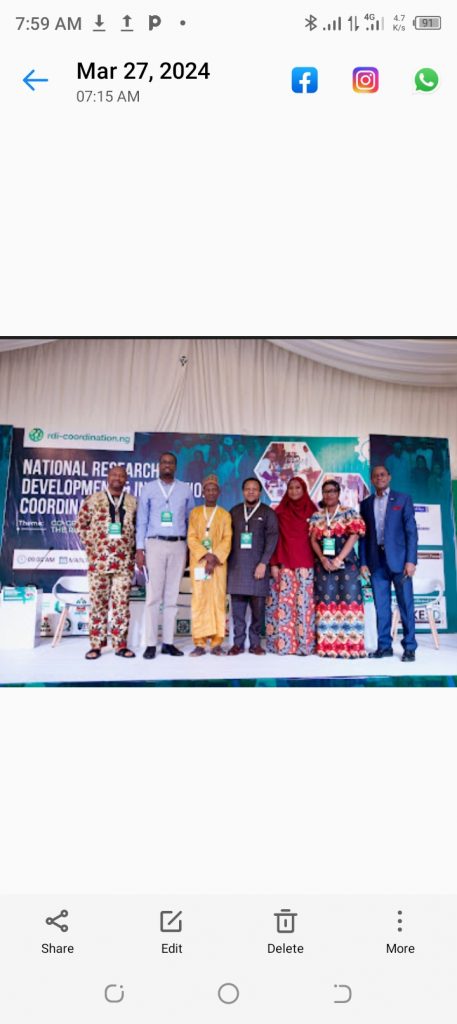
news
Update : FG confirms continuation of crude, refined product sales in Naira initiative, Says Wale Edu

 The Federal Government has confirmed the crude and refined product sales in Naira initiative remains a standing national policy and will continue indefinitely.
The Federal Government has confirmed the crude and refined product sales in Naira initiative remains a standing national policy and will continue indefinitely.
However, the policy will stay in place as long as it serves the public interest and supports Nigeria’s broader economic goals.
This assurance was contained in the official X (formerly Twitter) handle of the Federal Ministry of Finance on Wednesday morning amid growing inquiries on the status of the policy.
The Ministry stated the initiative, first approved by the Federal Executive Council (FEC), is a long-term strategic directive and not a short-term or provisional measure.
According to the Ministry, stakeholders have reconvened to reiterate their full support and ongoing commitment to ensuring the successful implementation of the initiative.
The policy, which mandates the transaction of crude oil and refined petroleum products in Naira, is aimed at strengthening the country’s economic sovereignty, enhancing local refining capacity, and stabilizing the foreign exchange market by reducing the demand for dollars in domestic petroleum transactions.
The Ministry explained that this policy is structured to foster energy security and encourage investment in domestic refining infrastructure.
“The Crude and Refined Product Sales in Naira initiative is not a temporary or time-bound intervention, but a key policy directive designed to support sustainable local refining, bolster energy security, and reduce reliance on foreign exchange in the domestic petroleum market,” the statement reads.
While acknowledging that the transition involves complexities, the government admitted that existing challenges are being systematically addressed.
“As with any major policy shift, the Committee acknowledges that implementation challenges may arise from time to time. However, such issues are being actively addressed through coordinated efforts among all parties,” the Ministry said.
To assess the progress made and address lingering implementation issues, the Technical Sub-Committee on the Crude and Refined Product Sales in Naira initiative held a review meeting on Tuesday. The gathering brought together key figures involved in the execution of the policy.
Among the attendees were the Minister of Finance and Coordinating Minister of the Economy, Mr. Wale Edun, who chairs the Implementation Committee; and the Executive Chairman of the Federal Inland Revenue Service (FIRS), Mr. Zacch Adedeji, who heads the Technical Sub-Committee.
Also present were the Chief Financial Officer of NNPC Limited, Mr. Dapo Segun; the Coordinator of NNPC Refineries; Management of NNPC Trading; representatives from the Dangote Petroleum Refinery and Petrochemicals; and senior officials from the Nigerian Upstream Petroleum Regulatory Commission (NUPRC), the Nigerian Midstream and Downstream Petroleum Regulatory Authority (NMDPRA), the Central Bank of Nigeria (CBN), and the Nigerian Ports Authority (NPA). A representative from Afreximbank and the Secretary of the Committee, Hauwa Ibrahim, also attended.
This policy, which aligns with the government’s broader economic reform agenda, is expected to support local content development, ease pressure on Nigeria’s foreign reserves, and provide a more predictable pricing structure for refined petroleum products in the domestic market.
The presence of major players from both the public and private sectors at the meeting shows the scale of collaboration required to sustain the policy. It also reflects the growing confidence in Nigeria’s shift toward economic policies that prioritize local capacity and currency resilience.
news
Breaking : TInubu appoints Bashir Ojulari as new CEO group of NNPC and GMD mele kyari get sacked, Says Onanuga
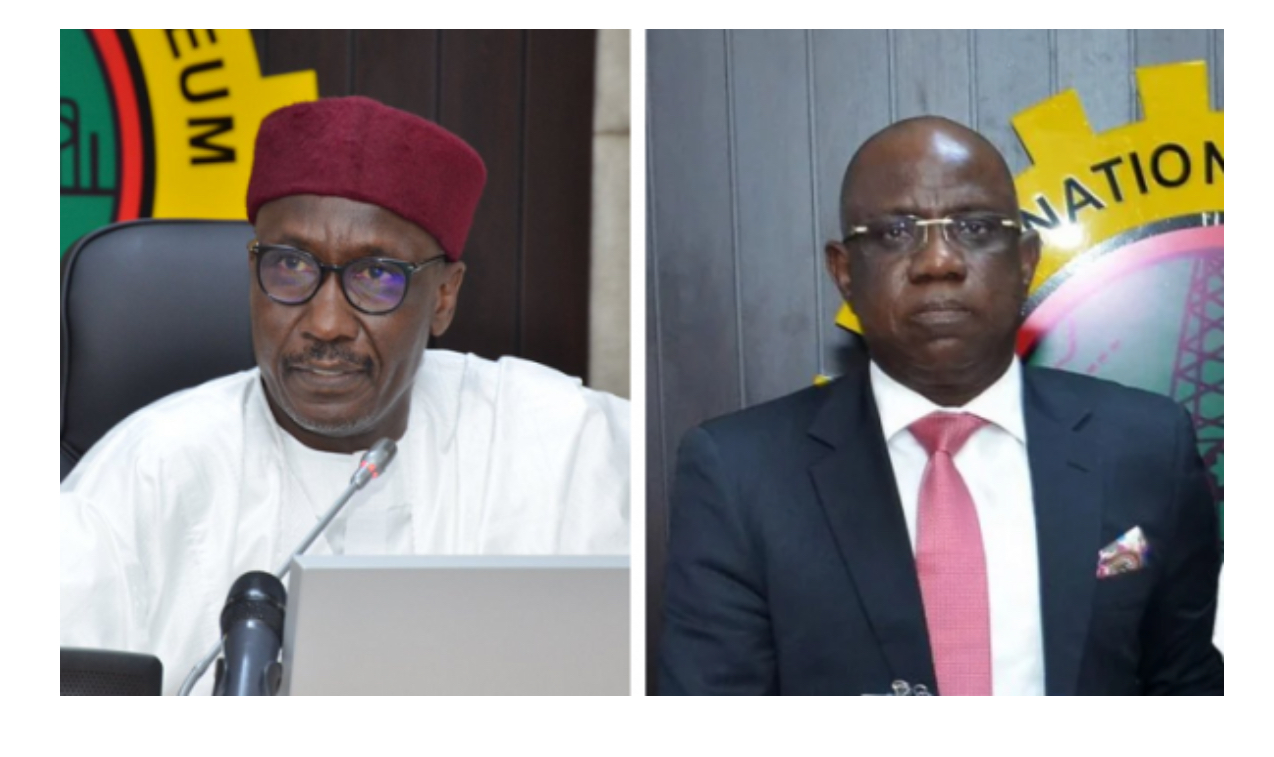
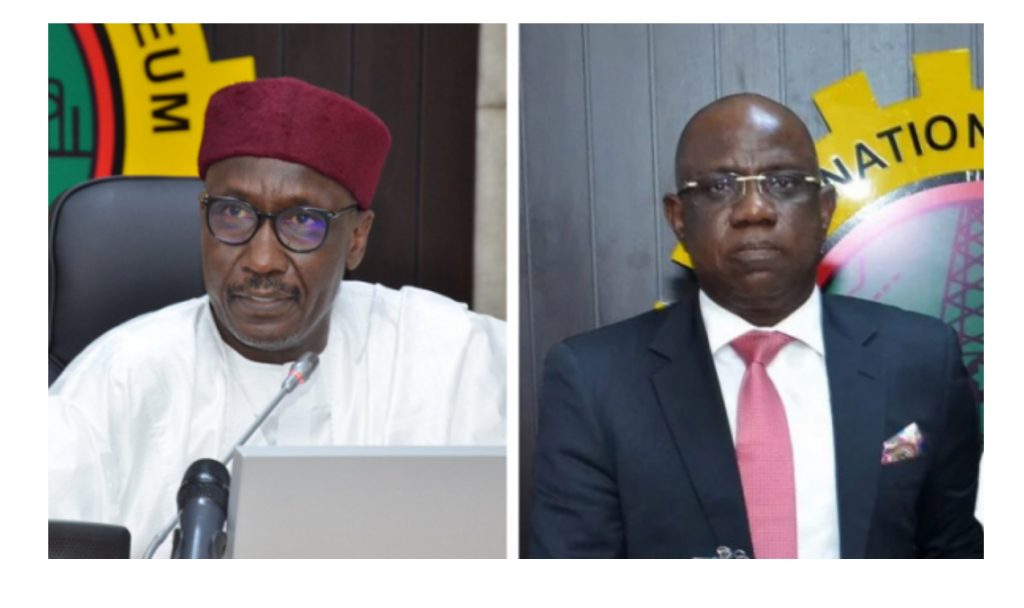 President Bola Tinubu has sacked the board of the Nigerian National Petroleum Company (NNPC) including its Group Chief Executive Officer, Mele Kyari and board chairman Pius Akinyelure.
President Bola Tinubu has sacked the board of the Nigerian National Petroleum Company (NNPC) including its Group Chief Executive Officer, Mele Kyari and board chairman Pius Akinyelure.
The decision, effective April 2, 2025, was announced in a statement by presidential spokesperson Bayo Onanuga.
President Tinubu cited the need for enhanced operational efficiency, restored investor confidence, and a more commercially viable NNPC as the driving forces behind the decision.
Invoking his powers under Section 59(2) of the Petroleum Industry Act (PIA) 2021, he reconstituted the board with new leadership aimed at repositioning NNPC Limited for greater productivity and alignment with global best practices.
Kyari was first appointed NNPC chief by former President Muhammadu Buhari but was reappointed in 2023 by President Tinubu.
As part of the overhaul, Bayo Ojulari takes over from Kyari as the new group CEO, while Ahmadu Musa Kida has been appointed as NNPC’s new non-executive chairman, replacing Pius Akinyelure. Also, Adedapo Segun has been confirmed as the company’s chief financial officer (CFO).
In line with the PIA, the president also appointed six non-executive directors from each geopolitical zone.
They include Bello Rabiu representing the north-west, Yusuf Usman from the north-east, and Babs Omotowa, a former managing director of the Nigerian Liquefied Natural Gas (NLNG), for the north-central.
Others are Austin Avuru for the south-south, David Ige for the south-west, and Henry Obih for the south-east.
Meanwhile, Lydia Shehu Jafiya, the permanent secretary of the federal ministry of finance, and Aminu Said Ahmed of the ministry of petroleum resources will represent their respective ministries on the new board.
“This restructuring is aimed at repositioning NNPC Limited for greater productivity and efficiency in line with global best practices. We are taking bold steps to transform the company into a more commercially driven and transparent entity,” the statement reads.
The changes take effect immediately, and the new board has been handed a strategic action plan, which includes a “review of NNPC-operated and Joint Venture Assets to ensure alignment with value maximisation objectives”.
news
Tinubu commended Nandap for her leadership, extends Comptroller-General tenure till 2026, says Onanuga
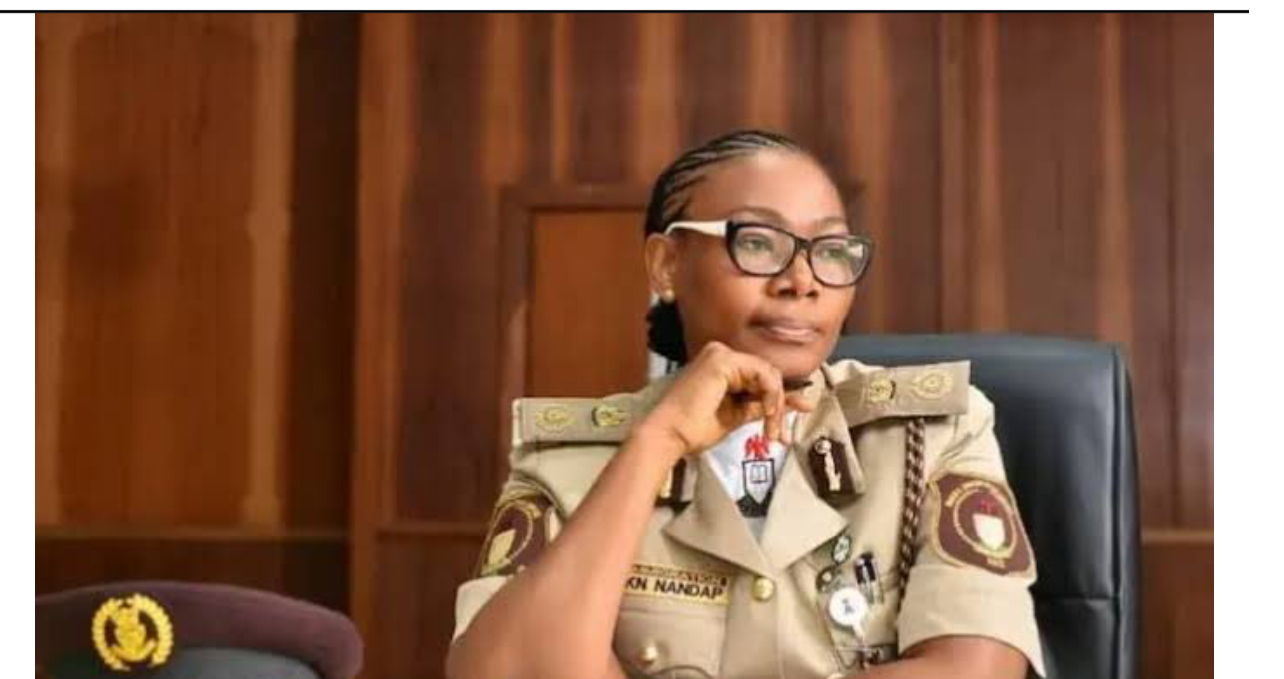
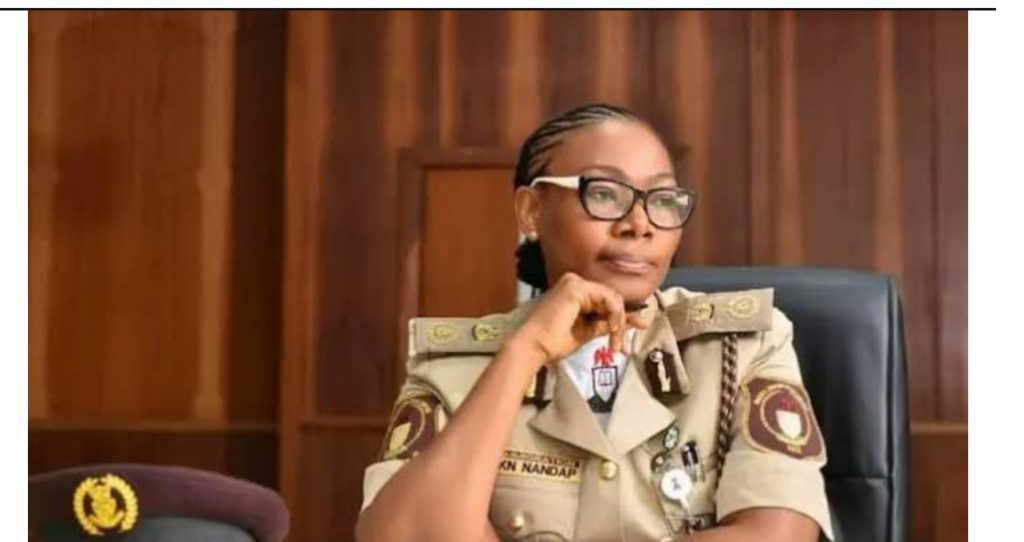 President Bola Tinubu has approved the extension of the tenure of the Comptroller-General of the Nigeria Immigration Service, Kemi Nandap, until December 31, 2026.
President Bola Tinubu has approved the extension of the tenure of the Comptroller-General of the Nigeria Immigration Service, Kemi Nandap, until December 31, 2026.
Nandap, who joined the NIS on October 9, 1989, was appointed as Comptroller-General on March 1, 2024, with an initial tenure set to end on August 31, 2025.
A statement by the president’s Special Adviser on Information and Strategy, Bayo Onanuga, on Monday, said for her leadership, noting improvements in border management, immigration modernisation, and national security under her watch.
“Under her leadership, the Nigeria Immigration Service has witnessed significant advancements in its core mandate, with notable improvements in border management, modernisation of immigration processes and national security measures.
“President Tinubu commended the Comptroller-General for her exemplary leadership and urged her to continue dedicating herself to the Service’s strategic priorities, which align with his administration’s Renewed Hope Agenda,” the statement read.
He also reaffirmed his commitment to supporting the NIS in safeguarding Nigeria’s borders and ensuring safe and legal migration.
-

 news4 years ago
news4 years agoUPDATE: #ENDSARS: CCTV footage of Lekki shootings intact – Says Sanwo – Olu
-

 news1 year ago
news1 year agoEnvironmental Pollutions : OGONI COMMUNITY CRIES OUT, THREATENS TO SHUT DOWN FIRSTBANK,SHELL OIL COMPANY OPERATIONS FOR NOT PAYING COURT AWARD
-
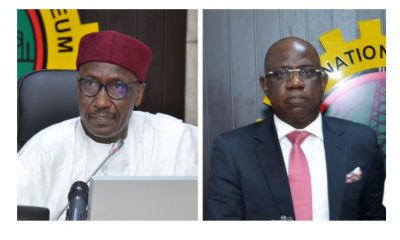
 news1 week ago
news1 week agoBreaking : TInubu appoints Bashir Ojulari as new CEO group of NNPC and GMD mele kyari get sacked, Says Onanuga
-

 news2 weeks ago
news2 weeks agoUpdate : Fubara ordered bombing of Rivers Assembly, I am not under duress I resigned, Says ex-Rivers HoS Nwaeke
-
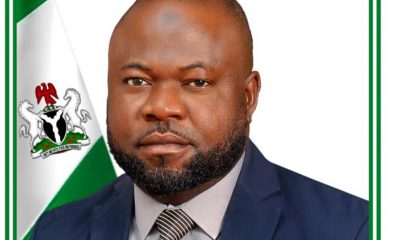
 interview2 weeks ago
interview2 weeks agoNIGERIA MECHANIZED AGRO EXTENSION SERVICE PROJECT, A STRATEGIC MOVE TO ALLEVIATE POVERTY – DR. AMINU ABDULKADIR
-

 news2 weeks ago
news2 weeks agoTinubu commended Nandap for her leadership, extends Comptroller-General tenure till 2026, says Onanuga
-
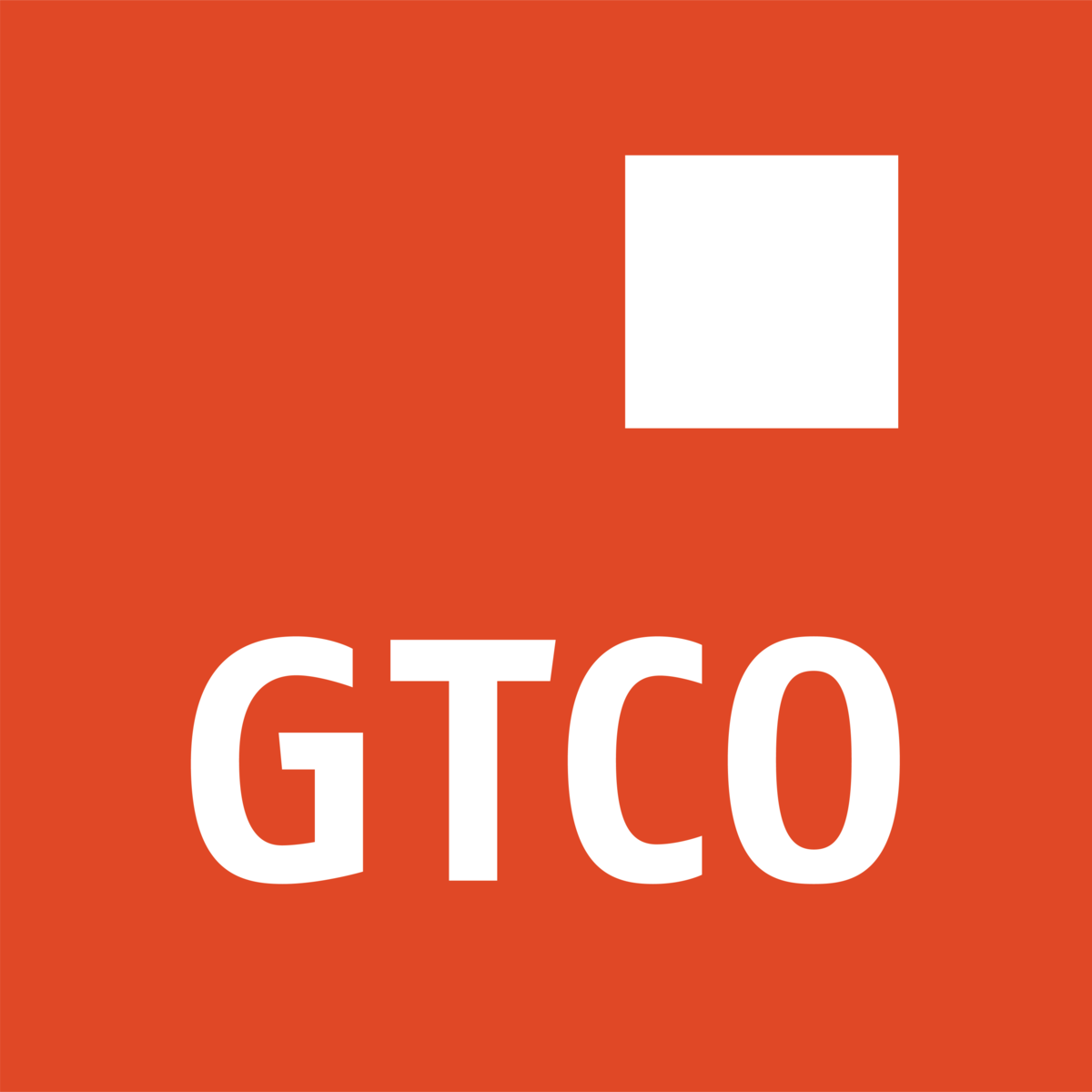
 brand2 weeks ago
brand2 weeks agoGTCO Plc Releases 2024 Full Year Audited Results …Pays Shareholders Record Dividend of N8.03k for 2024 Financial Year
-
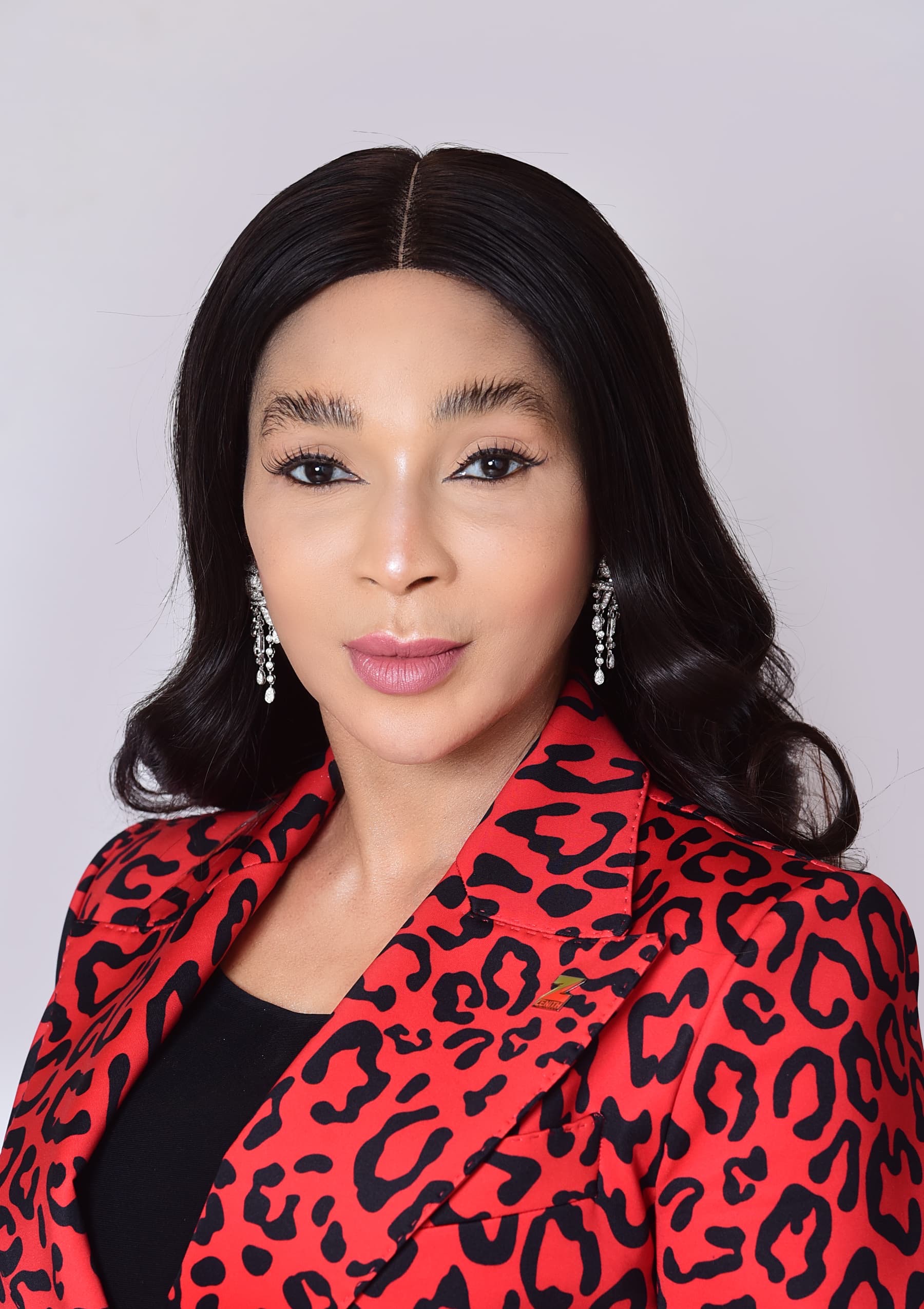
 brand2 weeks ago
brand2 weeks agoZENITHz BANK MAINTAINS SUPERLATIVE PERFORMANCE WITH PBT OF N1.3 TRILLION IN FULL YEAR 2024


